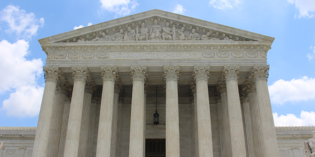Extending human and civic rights

Electoral officials need more money to run elections during Covid-19
Erik Asplund, Toby James and Alistair Clark audit the additional costs countries are facing to run safe and accessible elections during the Covid-19 pandemic. They argue it is vital that election management is sufficiently well funded during this crisis to maintain voter participation and trust in electoral outcomes.

Online voting can work, but only if we design systems that voters can have confidence in
Could online voting be used to ensure elections continue during the Covid-19 pandemic? Areeq Chowdhury sets out some key principles of accessibility, security and user experience which should form the basis of any internet voting system if it is to elicit public confidence.

How Covid-19 is altering our conception of citizenship
The Covid-19 pandemic is a public health emergency, but it also has the potential to impact on many other elements of European societies beyond health services. Jelena Dzankic and Lorenzo Piccoli write on the effect the outbreak is having on the uses and meanings of citizenship.

Brexit is happening – are EU citizens’ rights finally a done deal?
As the UK formally leaves the European Union this week, and enters the transition period, Alexandra Bulat assesses the flaws in the EU citizens’ Settlement Scheme and argues that it still undermines the fundamental rights of those affected.

Why it’s bad for democracy when we ignore the voices we would rather not hear
Democracy requires that citizens be empowered to speak their minds across a wide range of issues. But in order to ensure democratic equality, do we have to include and listen even to those hateful, racist, or misogynistic voices that would seek to undermine democracy? Mary F. (Molly) Scudder argues that it is only with reference to the concept of ‘uptake’ that we can effectively deal with anti-democratic speech and arguments. She argues that if we first consider and critically engage with what others have to say, we are then justified in rejecting their input and even shutting them down. Focusing on the importance of uptake in democratic deliberation, she argues,can sound the alarm – alerting people to threats to democracy – while also helping to ensure that the voices of the marginalised and oppressed are not dismissed or ignored.

The rights of non-UK EU citizens are still not a ‘done deal’
In his first appearance in the House of Commons as Prime Minister, Boris Johnson said that non-UK EU citizens would be ‘guaranteed’ the right to stay after Brexit, restating an earlier promise. However, the government has proposed no new primary legislation to achieve this. Alexandra Bulat explains how the existing settled status scheme still falls short of enshrining automatic rights, and how a ‘no deal’ Brexit would mean further uncertainties and inequalities in EU citizens’ rights.

The US Supreme Court has decided partisan gerrymandering is outside its remit. A democratic restoration now depends on the people alone.
The United States Supreme Court has determined that reviewing partisan gerrymandering cases was outside the remit of federal courts. Alex Keena, Michael Latner, Anthony J. McGann and Charles Anthony Smith argue that in failing to recognise the vote dilution caused by the redrawing of a state’s electoral district boundaries to the party in power’s advantage, as well as connecting the majority rule standard to the 14th Amendment, the decision removes Americans’ fundamental right to participate equally in the political process.





 Democratic Audit's core funding is provided by the Joseph Rowntree Charitable Trust. Additional funding is provided by the London School of Economics.
Democratic Audit's core funding is provided by the Joseph Rowntree Charitable Trust. Additional funding is provided by the London School of Economics.